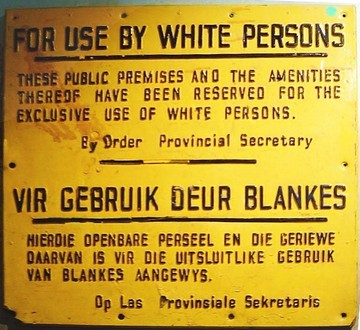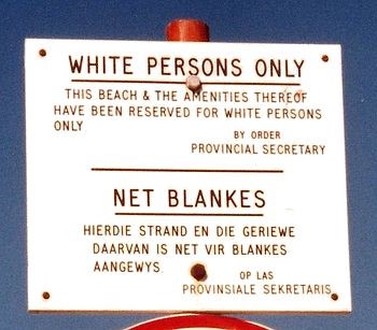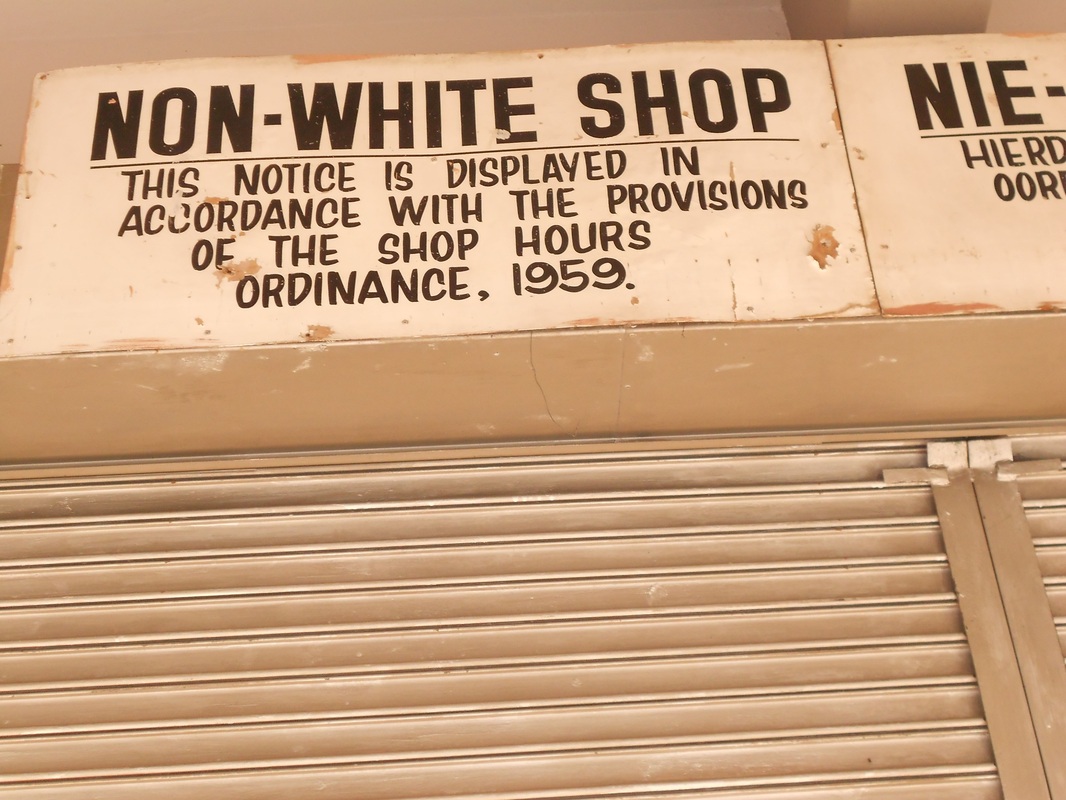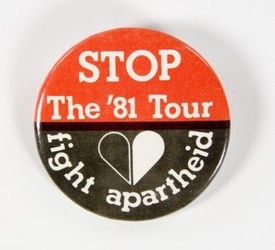Letter from KIP's Mum - Building the Kingdom of God (A5)
Dear pupils,
This letter to you is very special because it tells you about something that happened to me when I was a young woman. As you finish learning about the kingdom of God and start to learn about how people have helped God’s kingdom to come on earth, my story might help you realize that sometimes its not as easy as it sounds. Not because people don’t want to bring about the kingdom…but because they are not exactly sure how.
I was born in New Zealand and in 1981 I was 23 years old. New Zealanders are great rugby players – you may know of our national team, the All Blacks. We love our rugby and we love the silver fern that the players wear as a symbol of our nation.
In 1981, the South African Rugby team, the Springboks, was invited to tour New Zealand. I remember the tour well, not because I love rugby particularly, but because it caused terrible conflict and fighting in our county, in my city and even in my home.
At that time only white people could be chosen for the South African rugby team. In fact the South African government enforced racial segregation (this is called ‘apartheid’) and it means that only one racial group (in South Africa it was the white people) could do a lot of things. Black people could not vote, they could not live in certain areas or even visit local places.
This letter to you is very special because it tells you about something that happened to me when I was a young woman. As you finish learning about the kingdom of God and start to learn about how people have helped God’s kingdom to come on earth, my story might help you realize that sometimes its not as easy as it sounds. Not because people don’t want to bring about the kingdom…but because they are not exactly sure how.
I was born in New Zealand and in 1981 I was 23 years old. New Zealanders are great rugby players – you may know of our national team, the All Blacks. We love our rugby and we love the silver fern that the players wear as a symbol of our nation.
In 1981, the South African Rugby team, the Springboks, was invited to tour New Zealand. I remember the tour well, not because I love rugby particularly, but because it caused terrible conflict and fighting in our county, in my city and even in my home.
At that time only white people could be chosen for the South African rugby team. In fact the South African government enforced racial segregation (this is called ‘apartheid’) and it means that only one racial group (in South Africa it was the white people) could do a lot of things. Black people could not vote, they could not live in certain areas or even visit local places.
|
Some New Zealanders said we should not be playing rugby against South Africa while it had such a political system. They began a campaign called HART (Halt All Racist Tours) to stop the tour, saying that playing rugby against South Africa excused apartheid – or at least made it look like we didn’t object to it. By refusing to play rugby against the Springboks, these people said, New Zealanders could show South Africa’s oppressed black people that we supported them and that we would not stand by doing nothing while they were treated so poorly.
|
Other people, though, thought differently. They thought that the politics of a country had nothing to do with the sport they played and that the two should remain separate. In fact they said that if we kept the communication open and talked to South Africa through sport we were in a better position to change their thinking on the issue.
For 56 days in July, August and September 1981, New Zealanders divided against each other. More than 150,000 people took part in over 200 demonstrations in 28 places.
At the first game of the tour protesters managed to break through a fence but they didn’t make it onto the rugby ground. However, three days later, in my hometown, Hamilton, things were different.
Inside a packed Rugby Park stadium enthusiastic rugby fans were hoping for a great game. But anti-apartheid protestors had different ideas. To start with they had bought more than 200 tickets to the game so that they could protest from within the grounds. And in the main street, around 5000 people, including my Dad and members of his local Methodist Church, gathered to march in protest to Rugby Park where the game was to be played. Protestors hoped to break down the perimeter fence, walk onto the ground and sit down so the game could not go on. Sure enough, just before kick-off about 350 protesters invaded the ground and formed a close huddle chanting ‘the whole world is watching’. And they were. This game was the first time a rugby game against a South African team had been broadcast live. So, expecting to see a game of rugby, what the world, black and white, actually got to see was that apartheid divided people and destroyed what we have in common.
Rugby fans that had gone to watch the game, including my husband’s family, were angered about the presence of the protestors. Some fans took to the field and fights broke out between fans and protestors. The police decided that the situation was out of hand and so they cancelled the match. This made the rugby fans even angrier and they attacked protesters with fists, boots, cans and bottles. The police eventually got the protesters away from the ground but such was the anger that an ambulance that had come to the ground to help the injured was overturned.
My Dad was not hurt, neither was my husband’s family. But people were very angry and I was caught in the middle of the two sides.
What did I learn? I am sure that both the fans and the protestors thought they were doing the right thing. It’s just that some times it is hard to know what the right thing is.
Generally one of the toughest questions we face is what to do about people who don’t treat others as we think they should…or who don’t treat the land or seas the way we think they should be treated…or who don’t spend money the way we think they should.
Recently you learned about Pope Francis, a man who has a vision for the world and who is trying to bring that vision to life. And you have just learned that this vision, called the kingdom of God (or for Matthew the Kingdom of Heaven), is found in the Gospels. God’s kingdom is a time and space in which we all act as if God were our king, ‘governing’ or ‘ruling’ us. Some people call God’s kingdom, ‘God’s dream’, or ‘God’s era’, or ‘God’s vision’. Whatever you call it though, it’s a view of the world in which all people have equal dignity and value, and we all get to share in the wealth this world has. It sounds like a great ideal; a great dream, a great kingdom.
In the next part of your study you are going to learn about another man who had a vision for his country. Many of you will already know something about him, he’s Nelson Mandela. You are going to learn about his dream for South Africa, about what he did and about the difference he made.
Did what happened at Rugby Park that day make a difference? I hope so. Those people fighting against apartheid in South Africa who saw everything live on their television said that it was an important moment in their struggle. Nelson Mandela himself said later that when the news reached him in his prison, it was 'as if the sun had come out’. For me, I like to imagine that if I had been a black woman in South Africa watching the protestors that day I would have felt proud that so many people cared about me.
The movie Invictus is about Nelson Mandela becoming President of South Africa and how he used rugby to break down the barriers of racism. If your teachers think it’s worthwhile, you could watch it.
If not, just listen to the rugby song ‘World in Union’ which was commissioned by the International Rugby Board in 1991 to try and show what it thinks is important. (I have put the lyrics below.)
The melody is from Gustav Holst’s "The Planets", and was originally adapted by Holst for its use in the English/Anglican patriotic hymn, “I Vow to Thee My Country” so you might know it.
You can watch it here.
Have fun as you begin your new learning….and write back to me what you think about these hard questions! Tell me what you would have done in Hamilton in 1981. Would you have been a fan or a protestor that day? Why?
Be all that you are!
Kip’s Mum
For 56 days in July, August and September 1981, New Zealanders divided against each other. More than 150,000 people took part in over 200 demonstrations in 28 places.
At the first game of the tour protesters managed to break through a fence but they didn’t make it onto the rugby ground. However, three days later, in my hometown, Hamilton, things were different.
Inside a packed Rugby Park stadium enthusiastic rugby fans were hoping for a great game. But anti-apartheid protestors had different ideas. To start with they had bought more than 200 tickets to the game so that they could protest from within the grounds. And in the main street, around 5000 people, including my Dad and members of his local Methodist Church, gathered to march in protest to Rugby Park where the game was to be played. Protestors hoped to break down the perimeter fence, walk onto the ground and sit down so the game could not go on. Sure enough, just before kick-off about 350 protesters invaded the ground and formed a close huddle chanting ‘the whole world is watching’. And they were. This game was the first time a rugby game against a South African team had been broadcast live. So, expecting to see a game of rugby, what the world, black and white, actually got to see was that apartheid divided people and destroyed what we have in common.
Rugby fans that had gone to watch the game, including my husband’s family, were angered about the presence of the protestors. Some fans took to the field and fights broke out between fans and protestors. The police decided that the situation was out of hand and so they cancelled the match. This made the rugby fans even angrier and they attacked protesters with fists, boots, cans and bottles. The police eventually got the protesters away from the ground but such was the anger that an ambulance that had come to the ground to help the injured was overturned.
My Dad was not hurt, neither was my husband’s family. But people were very angry and I was caught in the middle of the two sides.
What did I learn? I am sure that both the fans and the protestors thought they were doing the right thing. It’s just that some times it is hard to know what the right thing is.
Generally one of the toughest questions we face is what to do about people who don’t treat others as we think they should…or who don’t treat the land or seas the way we think they should be treated…or who don’t spend money the way we think they should.
- Is it better to talk to people who don’t hold the same values as us….or to show our disapproval of them by excluding them until they change?
- Do we help those who are being treated badly by refusing to speak to their oppressors or by working with them to get them to change their ways?
Recently you learned about Pope Francis, a man who has a vision for the world and who is trying to bring that vision to life. And you have just learned that this vision, called the kingdom of God (or for Matthew the Kingdom of Heaven), is found in the Gospels. God’s kingdom is a time and space in which we all act as if God were our king, ‘governing’ or ‘ruling’ us. Some people call God’s kingdom, ‘God’s dream’, or ‘God’s era’, or ‘God’s vision’. Whatever you call it though, it’s a view of the world in which all people have equal dignity and value, and we all get to share in the wealth this world has. It sounds like a great ideal; a great dream, a great kingdom.
In the next part of your study you are going to learn about another man who had a vision for his country. Many of you will already know something about him, he’s Nelson Mandela. You are going to learn about his dream for South Africa, about what he did and about the difference he made.
Did what happened at Rugby Park that day make a difference? I hope so. Those people fighting against apartheid in South Africa who saw everything live on their television said that it was an important moment in their struggle. Nelson Mandela himself said later that when the news reached him in his prison, it was 'as if the sun had come out’. For me, I like to imagine that if I had been a black woman in South Africa watching the protestors that day I would have felt proud that so many people cared about me.
The movie Invictus is about Nelson Mandela becoming President of South Africa and how he used rugby to break down the barriers of racism. If your teachers think it’s worthwhile, you could watch it.
If not, just listen to the rugby song ‘World in Union’ which was commissioned by the International Rugby Board in 1991 to try and show what it thinks is important. (I have put the lyrics below.)
The melody is from Gustav Holst’s "The Planets", and was originally adapted by Holst for its use in the English/Anglican patriotic hymn, “I Vow to Thee My Country” so you might know it.
You can watch it here.
Have fun as you begin your new learning….and write back to me what you think about these hard questions! Tell me what you would have done in Hamilton in 1981. Would you have been a fan or a protestor that day? Why?
Be all that you are!
Kip’s Mum
"World In Union"
There's a dream, I feel
So rare, so real
All the world in union, the world as one
Gathering together
One mind, one heart
Every creed, every color, once joined, never apart
Searching for the best in me
I will fight what I can beat
If I win, lose or draw, there's a winner in us all
It's the world in union
The world as one,
As we climb to reach our destiny, a new age has begun
We face high mountains
Must cross rough seas
We must take our place in history and live with dignity
Just to be the best I can
Sets the goal for every man
If I win, lose or draw, it's a victory for all
It's the world in union
The world as one
As we climb to reach our destiny
A new age has begun
There's a dream, I feel
So rare, so real
All the world in union, the world as one
Gathering together
One mind, one heart
Every creed, every color, once joined, never apart
Searching for the best in me
I will fight what I can beat
If I win, lose or draw, there's a winner in us all
It's the world in union
The world as one,
As we climb to reach our destiny, a new age has begun
We face high mountains
Must cross rough seas
We must take our place in history and live with dignity
Just to be the best I can
Sets the goal for every man
If I win, lose or draw, it's a victory for all
It's the world in union
The world as one
As we climb to reach our destiny
A new age has begun
Back to Letters from KIP's Mum



